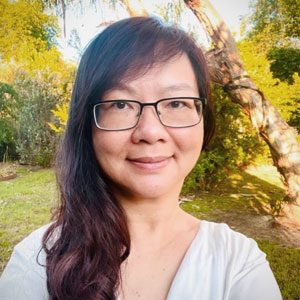The Chinese phrase “Humans head for higher positions, water flows to lower places” (人往高处走,水往低处流) speaks of a natural human tendency to climb upwards to a higher social or economic status, in contrast to the natural flow of water downwards. While Confucian spirituality encourages human flourishing and progress with positivity, Daoism advocates a peaceful flow amidst a negative outlook.
Over the centuries, one of the Chinese ideals has been to achieve success and recognition (功成名就), in order to glorify and illuminate one’s ancestors (光宗耀祖). Many contemporary Chinese families actively raise their children to enter secure and prestigious professions such as medicine, business, and law. Everyone strives to become “somebody.” Those marginalized including the disabled, the lost, and the poor are not only seen as “nobodies” but are sidelined and even despised, treated as burdens or the “junk” (废物) of society.
Here came a God-man who introduces an upside-down kingdom and invites his disciples to participate. Precisely for the marginalized and the lost, he “came to seek and to save” (Luke 19:10). It turns the tables and radically challenges a ladder-climbing culture and tradition. Not only so, he became the outcast, the rejected, and the forsaken, ultimately being crucified outside the city gate. Over the years I have observed and paid attention to those forgotten ones and wondered where Jesus is and what he is doing amongst them.
In the midst of endless pain and suffering in a world filled with conflict and destruction, we can easily feel disoriented and distressed, losing sight of people and hope for the future. The plight of refugees, the displaced, and those devastated by disasters and war can be both heart-wrenching and overwhelming. Our hearts cry out: “How long, oh Lord?”; “How long can we bear this?”; “How long before you come to rescue us?”; “Have you forgotten us, and don’t you care?”
It is a good reminder that God loves “nobodies”, as Christ’s mission is to restore the dignity and release the destiny of “nobodies”. He became “nobody” for our sake in order to demonstrate that everyone is “somebody” in the eyes of God.
Nobody1
nobody chooses to be born deaf or blind
forever living in silent darkness, confined within four walls
yearning for a myriad
of colours and sounds of the world outside
nobody sits with withered legs
in a wheelchair on an abandoned path
arms folded, head nodding
slipping into a world of daydreams
nobody mutters, walking aimlessly in a ward
unheeded by inadequate staff
neglected by their loved ones
waning in a forgotten corner of society
nobody sleeps outside a church on a cold winter’s night
warmed only by a stray dog
staring at feet walking past their face
letting frozen memories evaporate in the shivering wind
nobody carries all their belongings
risking life to reach a foreign land by boat
lost in a sea of strangers
without a passport
nobody searches for lost children
digging with bloody hands in rubble from a bomb blast
wailing towards heaven
till tears are dry and voices are no more
God loves nobody
©Xiaoli Yang. All rights reserved.
Endnotes
- Yang, X. (2023) Nobody. http://www.ethos.org.au/online-resources/Blog/nobody (accessed 10 Nov 2023).
Image credit: Bill Wegener via UnSplash.

Xiaoli Yang
Rev. Dr. Xiaoli Yang is an Australian Chinese theologian, pastor, poet, and spiritual director. She is currently serving Australian Association of Mission Studies and on the editorial board of Australian Journal of Mission Studies. View Full Bio
Are you enjoying a cup of good coffee or fragrant tea while reading the latest ChinaSource post? Consider donating the cost of that “cuppa” to support our content so we can continue to serve you with the latest on Christianity in China.